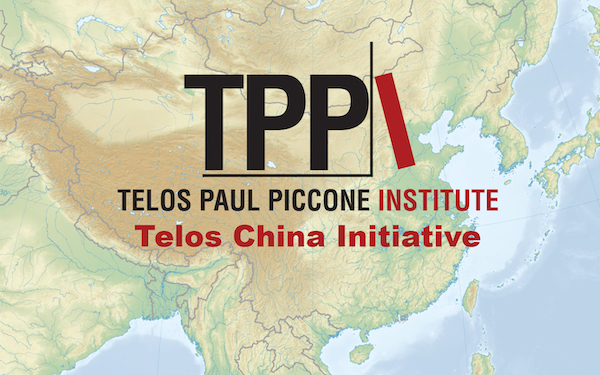By Peshraw Mohammed · Tuesday, December 3, 2024 Hamid Dabashi’s critique—or more accurately, his attack—on Hegel in the article “War on Gaza: How Hegel’s Racist Philosophy Informs European Zionism” represents an emerging trend in certain intellectual circles: dismissing European philosophy as fundamentally racist while advancing exclusionary regional ideologies, often excluding nations like Kurds and Jews by denying their identities and national aspirations. While Dabashi ostensibly raises valid concerns about colonialism and Eurocentrism, his interpretation—or more accurately, his misinterpretation—of Hegel is selective, reductive, and deeply entangled with a postcolonial hostility to the radical Enlightenment tradition embodied by thinkers such as Spinoza, Kant, and Hegel.
Drawing on the more nuanced readings of scholars like Susan Buck-Morss (who is misrepresented by Dabashi in the same article), Shlomo Avineri, and Domenico Losurdo, this response argues that Dabashi distorts Hegel’s philosophy and, in doing so, perpetuates the ideological prejudices embodied by pan-Iranism, pan-Arabism, pan-Turkism, and Islamism. Furthermore, I will explore why Hegel’s thought, as a philosophy of emancipation, holds critical significance for the self-determination of historically oppressed nations, particularly the Jews and Kurds. I begin by discussing how Dabashi misrepresents Hegel’s philosophy to advance his own chauvinistic and antisemitic agenda, while also indirectly exposing his fear toward Hegel as a thinker whose ideas could support both Kurds and Jews in their pursuit of statehood and nationality. Dabashi, an Iranian-American professor of Iranian Studies and Comparative Literature at Columbia University, frequently writes about topics such as Palestine, Israel, Kurdistan, and Iran, consistently intertwining them with Iranian nationalist chauvinism, antisemitism, and antikurdism, all disguised under the facade of progressive leftist ideas—a facade that must be unmasked.
Continue reading →
The video of the third webinar in the Telos-Paul Piccone Institute’s “China Keywords” series is now available and can be viewed here. In this webinar, Eric Hendriks talks with Prof. Shadi Bartsch about the reception and use of ancient Greek philosophers in contemporary Chinese political thought.
Prof. Bartsch is the Helen A. Regenstein Distinguished Service Professor of Classics at the University of Chicago and the author and editor of a dozen books on Greek and Roman Antiquity. For her latest monograph on the reception of the ancient Greeks in China, she spent ten years studying Mandarin. The effort paid off: its fruit is Plato Goes to China: The Greek Classics and Chinese Nationalism (Princeton University Press, 2023).
Continue reading →
 The third webinar of the Telos-Paul Piccone Institute’s “China Keywords” series, entitled “The Greeks according to Chinese Nationalist Intellectuals,” will take place on Thursday, May 16, from 10:00 to 11:00 a.m. Eastern Time (16:00 to 17:00 Central European Time). Our guest will be Prof. Shadi Bartsch, who will discuss the reception and use of ancient Greek philosophers in contemporary Chinese political thought. Plato and Aristotle figure prominently in anti-Western polemics. The third webinar of the Telos-Paul Piccone Institute’s “China Keywords” series, entitled “The Greeks according to Chinese Nationalist Intellectuals,” will take place on Thursday, May 16, from 10:00 to 11:00 a.m. Eastern Time (16:00 to 17:00 Central European Time). Our guest will be Prof. Shadi Bartsch, who will discuss the reception and use of ancient Greek philosophers in contemporary Chinese political thought. Plato and Aristotle figure prominently in anti-Western polemics.
Click here to register for the webinar.
Continue reading →
By Telos Press · Thursday, December 9, 2021 In today’s episode of the Telos Press Podcast, David Pan talks with Nir Evron about his article “Hannah Arendt, Thinking, Metaphor,” from Telos 196 (Fall 2021). An excerpt of the article appears here. In their conversation they discussed how Arendt understands the difference between a metaphorical and a literal view of the world; her view of metaphor as a bridge between the thinking ego and the social and political world that it inhabits; the tension in Arendt’s The Life of the Mind between her desire to move beyond metaphysical assumptions and her unwillingness to let go of the philosophical tradition; the consequences for morality of her conception of metaphor; the impact of the Eichmann trial on Arendt and how it prompted her to explore the connection between thoughtlessness and evil; and her belief that the individual’s ability to think in a critical fashion might serve as a check on the descent into totalitarianism. If your university has an online subscription to Telos, you can read the full article at the Telos Online website. For non-subscribers, learn how your university can begin a subscription to Telos at our library recommendation page. Print copies of Telos 196 are available for purchase in our online store.
Listen to the podcast here.
Continue reading →
By Telos Press · Thursday, January 7, 2021 In today’s episode of the Telos Press Podcast, Camelia Raghinaru talks with Lenka Ucnik about her article “Conscience, Morality, Judgment: The Bond between Thinking and Political Action in Hannah Arendt,” from Telos 192 (Fall 2020). An excerpt of the article appears here. If your university has an online subscription to Telos, you can read the full article at the Telos Online website. For non-subscribers, learn how your university can begin a subscription to Telos at our library recommendation page. Purchase a print copy of Telos 192 in our online store.
Listen to the podcast here.
Continue reading →
By Telos Press · Thursday, December 3, 2020 In today’s episode of the Telos Press Podcast, Camelia Raghinaru talks with Steven Knepper and Robert Wyllie about their article “In the Swarm of Byung-Chul Han,” from Telos 191 (Summer 2020). An excerpt of the article appears here. If your university has an online subscription to Telos, you can read the full article at the Telos Online website. For non-subscribers, learn how your university can begin a subscription to Telos at our library recommendation page. Purchase a print copy of Telos 191 in our online store.
Listen to the podcast here.
Continue reading →
|
|



